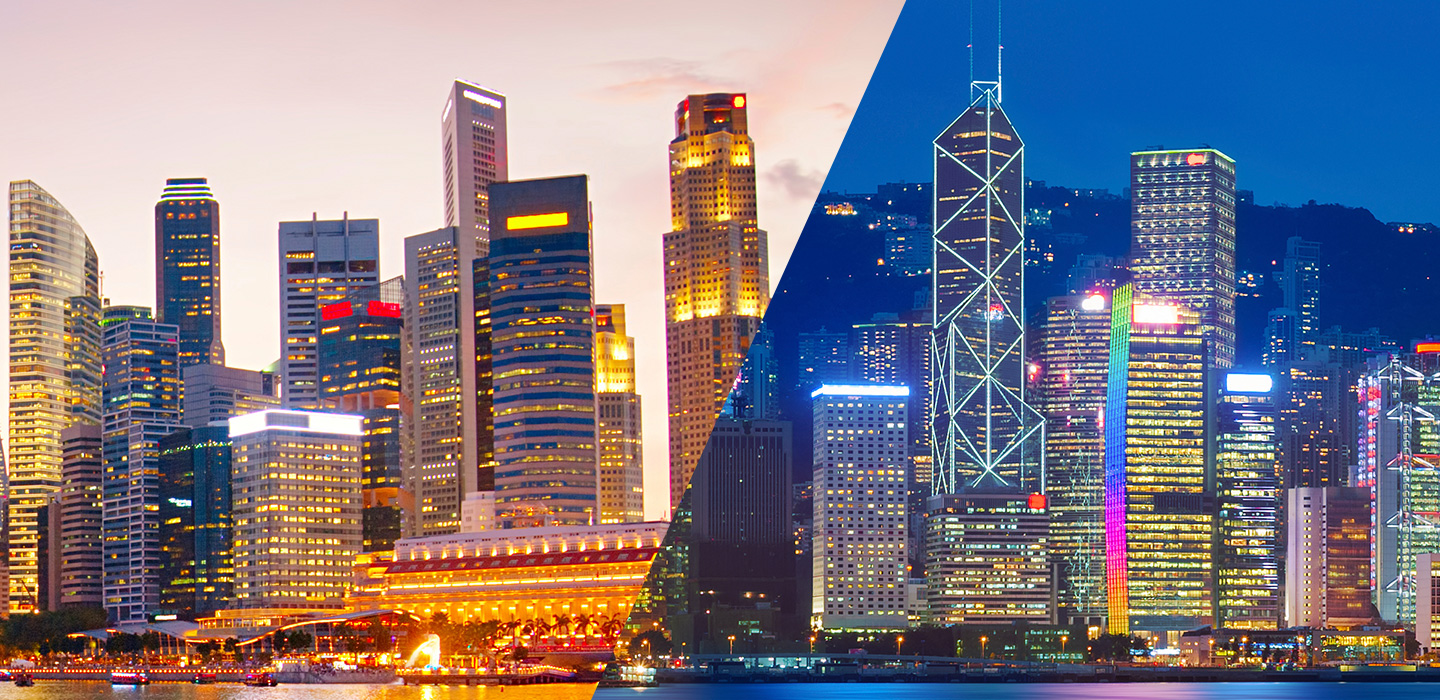For many years, Singapore and Hong Kong have been competing to see which city has the most competitive tax regime, attracting global companies to set up entities in their respective territories.
Both cities lead the pack in Asia, and arguably the rest of the world, in offering a holistic and conducive tax-friendly environment for businesses to grow and flourish. Their corporate tax rates, and more importantly their effective tax rates, are extremely low by international standards.
Tax is, of course, not the only factor impacting a firm’s choice of location – other considerations include the ease of setting up companies and doing business, quality of infrastructure, cost of living and many others. Nonetheless, corporate tax regimes remain an important consideration affecting companies operating or intending to operate in each of these two cities.
Undoubtedly, this was a factor in Hong Kong Chief Executive Carrie Lam’s recent announcement of a two-tier profit tax, slashing the tax by half on profits up to HK$2 million (S$348,643) in a drive to make Hong Kong more competitive.
In Singapore over the years, corporate income tax rates have gradually been reduced from a high of 40 per cent in 1986 to the current 17 per cent. Although there has always been a single flat rate in Singapore which applies to all resident and non-resident companies, in reality, most companies pay much lower rates, mainly due to the partial tax exemption (PTE) regime introduced in 2002.
Hong Kong similarly levies a single profits tax rate that has stood at 16.5 per cent since 2008, and although this is lower than Singapore’s rate by half a per cent, it does not offer a PTE regime.
At a breakeven taxable income of S$5,185,000 (see below), a company will pay the same corporate income tax in both cities, if we ignore temporary rebates that may be announced by their governments each year:
| Taxable income | S$5,185,000 (A) | Less partial tax exemption | 152,500 | S$5,032,500 | CIT payable @ 17% | S$855,525 (B) | Effective tax rate (B/A) | 16.5% |
CIT payable @ 17% S$855,525 (B)
Effective tax rate (B/A) 16.5%
This means that a company will pay a lower effective tax in Singapore, when compared to Hong Kong’s rate of 16.5 per cent for taxable income below S$5,185,000. The effective tax rate in Singapore can be as low as 4.25 per cent for taxable income below S$10,000 due to the first-tier 75 per cent tax exemption.
The effective tax rate is further reduced to 2.125 per cent for the years of assessment 2016 and 2017 due to the 50 per cent CIT rebates for these two years, albeit subject to S$20,000 and S$25,000 caps respectively.
Moreover, Singapore has a wide array of industry- specific tax incentives to encourage local and foreign investment and growth in targeted industries. These tax incentives have recently been certified as not amounting to harmful tax practices, given the substantive commitments and stringent qualifying conditions. With the new two-tier tax measures unveiled in Hong Kong, the formerly significant advantage that Singapore offered to less profitable companies will be reduced.
Both the PTE regime in Singapore and the new system in Hong Kong are aimed at helping SMEs.
Whilst the PTE regime in Singapore is extended to all companies, so long as they pay normal tax rates, the two-tiered system in Hong Kong is restricted to only one enterprise within each group of enterprises. Hence, businesses operating in groups may be better-off setting up their operations in Singapore.
This is also the case should some entities within the group incur tax losses. Under Singapore’s group relief system, tax losses of one entity can be transferred to set off the taxable profits of another within a group comprising Singapore incorporated companies with at least 75 per cent direct or indirect control.
In Hong Kong however, there is no group relief although tax losses can be carried forward indefinitely to set off future taxable profits in both cities. Singapore has the added advantage of allowing tax losses to be carried back to set off the immediate preceding year’s taxable profits, up to a cap of S$100,000.
Singapore also scores well with the 82 comprehensive tax treaties to date, whereas Hong Kong’s tax treaty network stands at 38.
Apart from the above factors that seem to favour a Singapore set-up, both cities are popular destinations for setting up holding companies due to a wide range of tax benefits and stability of the tax regime.
However, one area where Hong Kong has a distinct advantage over Singapore is the taxation of foreign income. While Singapore taxes foreign income remitted to Singapore, the Hong Kong government does not tax offshore profits at all. There is also no Hong Kong withholding tax on payment of interest to non-residents while in Singapore, a domestic 15 per cent withholding tax rate ordinarily applies, unless reduced by an applicable tax treaty.
Another area of concern could be goods and services tax (GST), which had been imposed in Singapore for more than 23 years. Where businesses end up bearing part of this burden if they are unable to claim back any GST suffered, they may prefer Hong Kong which has no GST.
It is fair to say then that there are equal supporters in both camps. Businesses operating in groups with essentially local operations with marginal profits or losses may prefer to set up in Singapore.
On the other hand, standalone companies with huge taxable profits that cannot qualify for Singapore tax incentives may be better off operating in Hong Kong, especially when they are using it as a gateway to Mainland China.
Ultimately, businesses should perform their own due diligence and look at both the tax and non-tax considerations to arrive at an informed choice.





